Throughout the history of the sport, to have a rematch for a fight remains uncommon but not out of the ordinary, but for a trilogy – that remains rare, and any pair of boxers that fight it out for more than twice seem to be culturally enshrined in discussions of not only the greatest fighters but the greatest fights.
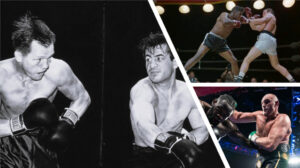
In my last article, I covered the legendary trilogies of Fury v. Wilder, Patterson v. Johansson, and Zale v. Graziano. For this Roundup boxing piece, I will dissect, in my opinion, the second-greatest boxing trilogy.
#2: Ward vs Gatti
In most “great boxing trilogy” lists, the names residing there are those of all-time great fighters, whose place in the Top Ten list of their respective weight class remains unquestioned. However, a great trilogy doesn’t always need to have world-class fighters slug it out – as seen in Micky Ward vs Arturo Gatti.
Both fighters were two sides of the same coin, natural-born brawlers, with cast iron jaws, hands that seemed to have bricks in them, and indomitable wills that could not be conquered by any human.
Micky Ward, nicknamed ‘Irish’, grew up in the industrial town of Lowell, Massachusetts, from a family of fighters. His small yet stocky physique was remarkably durable, and he brought out hard-earned victories from the likes of Emmanuel Augustus, Salvador Sanchez, and Shea Neary.
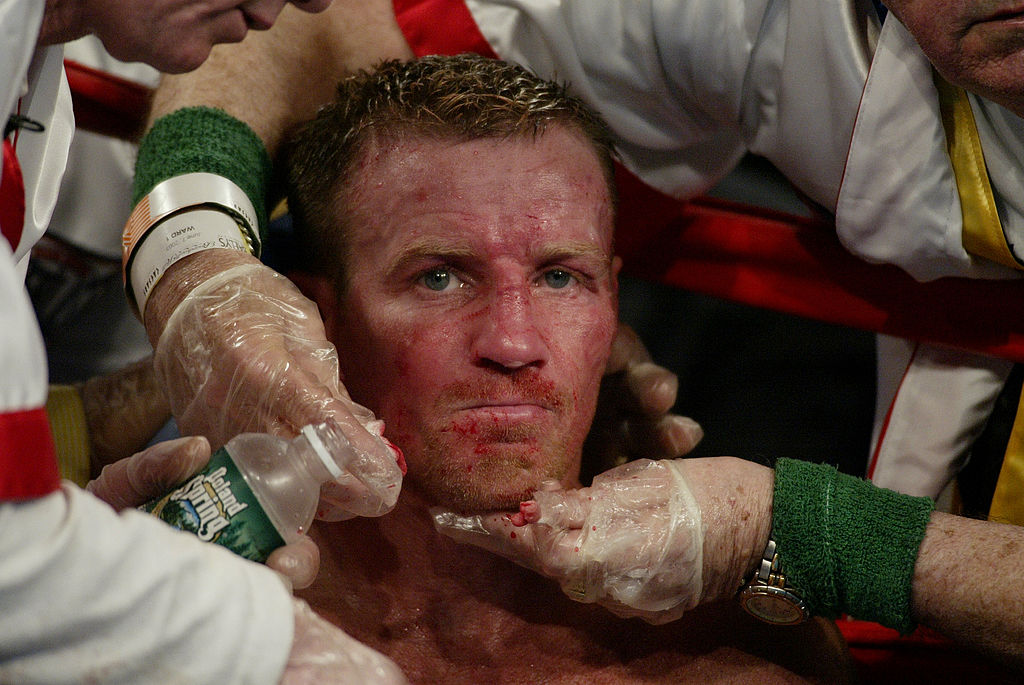
Arturo Gatti, originally born in Italy but then raised in Canada, stood out as a youth in his boxing gym for his fearlessness and raw courage. Moving into the pro ranks, the then 19-year-old Gatti displayed he also possessed razor-fast reflexes, durability, and the ability to slick together impressive combination punching. Gatti entered his boxing matches with an inner ferocity matched by almost none – save for Irish Micky.

Both men were nearly identical in height (5’8″), weight (141 lb.), and reach (68″). Both possessed incredible punching power – especially in regard to body punching. And both, as commentator Larry Merchant wrote, were “ultimate warriors,” fighters who never backed down and gave up.
“It was a question of who could take the most punishment, dish out the most haymakers, and possess the greatest will to win.”
There’s an old saying in boxing: “Styles Make Fights.” It essentially means that the differing styles of fighters will, to some extent, influence the outcomes of a boxing match. When two fighters possess the same style, it essentially becomes a contest of who can mantle that style the best. For Gatti and Ward, it was a question of who could take the most punishment, dish out the most haymakers, and possess the greatest will to win.
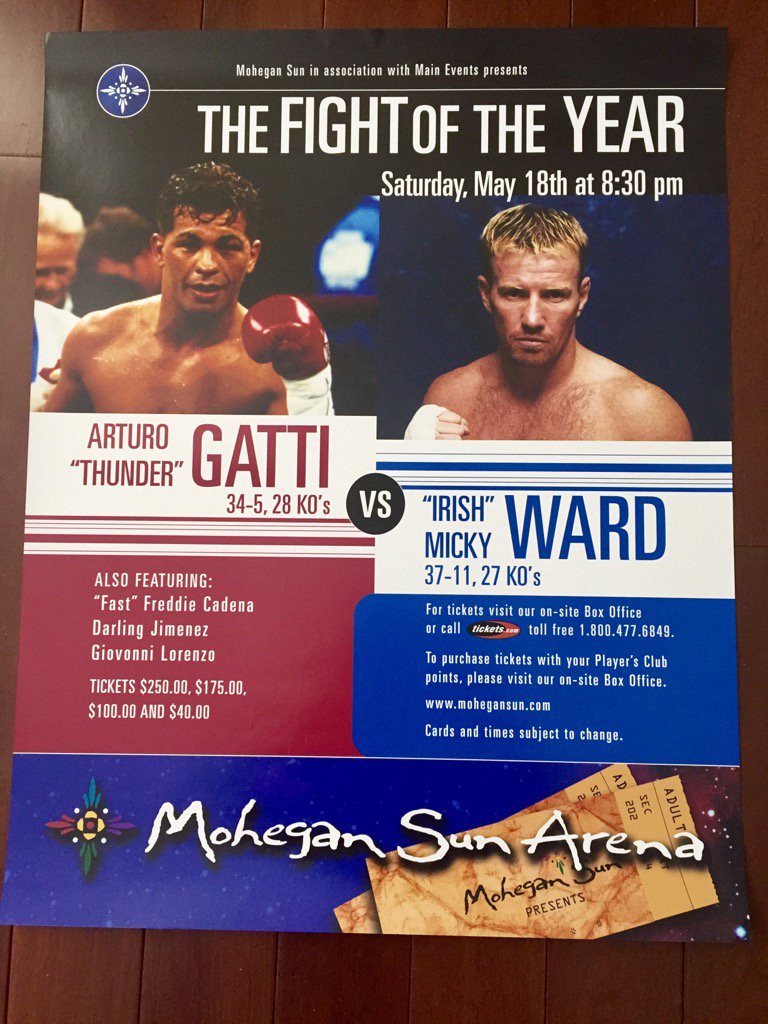
Before their first fight in 2002, Micky Ward was an aging 36-year-old ex-champion, a man who was seen as the perfect chopping block for Arturo Gatti, then just 30. However, as the aging Tony Zale displayed against Rocky Graziano, the old man had more strength in him than initially thought.
From the opening bell, Arturo Gatti, utilizing his youthful speed, danced around Mickey, abandoning his traditional brawler style. Against the slow, plodding Micky Ward, this was a great strategy – until Ward caught up to Gatti. By Round 3, it was the American hitting hard to the body and getting in with the sharper punches.

In boxing, body shots are utilized for a multitude of reasons. For one, it causes severe damage to the vital organs of the body – especially the liver. Additionally, it can sap the energy of a fighter, literally draining them of air as their ribs and diaphragm are cracked by the repeated blows of punches. Finally, a fighter being hit in the body will instinctively pull their arms to protect their torso – leaving their head vulnerable.
All three of these incentives were realized, in the next round, Micky accelerated the pace, first targeting Gatti’s body, then landing hard blows to his opponent’s head as Gatti left his head exposed.
But Gatti came back with an unquenched spirit, landing “with hard combinations that would have felled just about anyone else in the division at the time,” wrote combat sports commentator Levi Nile. His right eye was now cut, and with Gatti showing no signs of slowing down, Ward had every opportunity to become demoralized.
“This is it, [gatti] is not going to recover.”
However, he didn’t let it happen. In Round 9, he unleashed a left hook from hell that slammed into Gatti’s exposed liver, dropping him. “This is it,” famed boxing trainer Emmanuel Steward stated, “He’s not going to recover, these aren’t like head punches.”
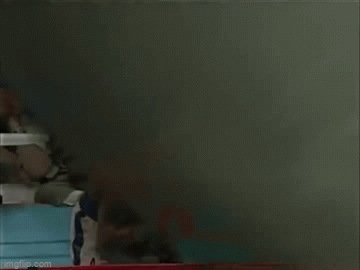
Gatti did beat the count, yet was immediately assailed by Ward who charged in like a bull, landing sickening combinations to the head and then the body, whatever he could lay his brick-laden gloves on. It seemed that it was over for Gatti, but then the miraculous happened.
Gatti began to throw punches of his own, and now Ward was the one in trouble, being forced back onto the ropes. The world was reminded that Gatti too possessed an innate warrior spirit, a spirit that forbade any notions of surrender or submission. The two brawlers fought it out, with Ward eventually reasserting control and beating back Gatti, who absorbed nearly 30 power punches for the remainder of the round.
“This should be the round of the century!”
Upon seeing the result of the match, Steward yelled out: “This should be the round of the century!” In the 10th and final round, Gatti was able to outbox Ward and avoid destruction. The result of the bout was now in the hands of the judges, who awarded it to Micky Ward. Nevertheless, Levi Nile commented that “it really didn’t matter whom the judges declared as the winner; the fight was so great that it transcended the opinions of three men ringside and was destined to be a trilogy.”
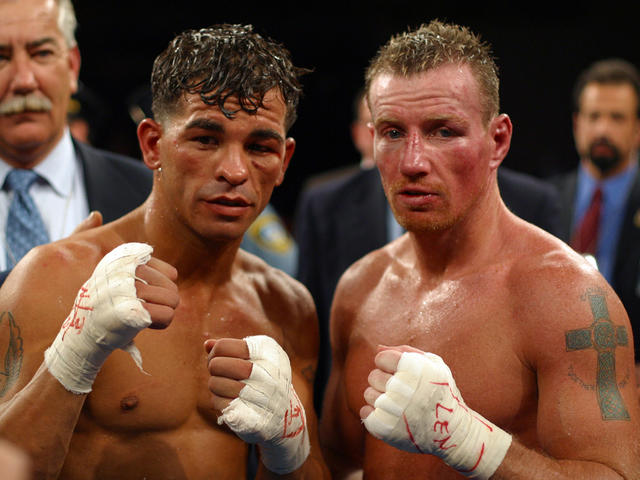
Gatti didn’t hide his respect and admiration towards Ward stating how “that left hook was the hardest I’ve ever been hit… The pain from that blow; I couldn’t hide it. That fight was the toughest I’ve ever been in.” Gatti wasn’t mincing words when he stated that – the left hook from Ward later would cause a cyst to develop near his rib cage that Gatti would bear for the rest of his life.
“It was a tough fight,” Ward said later. “Two guys with a lot of heart; two guys with the will to win. When I was in it, I knew it was a tough fight.”
“IT was a tough fight, two guys with a lot of heart; two guys with the will to win.”
As in the previous fight, the early rounds were all Gatti’s. Utilizing his superior footwork and speed, he ditched any notions of slugging it out with Irish Micky and instead bent low to avoid body blows, whilst jabbing at long range to set up powerful counterpunches.
In Round 3, Gatti landed a thudding straight right that sent Ward down on the canvas. Ward was badly hurt, and Gatti then wailed on the older man for the rest of the round. Throughout the next few rounds, Gatti utilized prudent counterpunching and speed to avoid the cement-footed Ward. Sometime during the fight, Ward’s left eardrum burst after Gatti had struck the side of his head.
Ward still gave it his all – landing hard blows to the body and having some success in the final round – but it was too little too late. The judges awarded Gatti a unanimous decision win. If Gatti vs Ward 1 was a back-and-forth brawl, the rematch was a tale of a younger, more athletic fighter outpointing his less technically proficient opponent. To cap off the already epic duo of fights, a third – and final – boxing match was arranged.

Gatti, despite his dominant win, remained wary of Ward’s power, saying that “I used to wonder what fighting my twin would be like. Now I know.” Ward, then 37 years old, declared that their third bout would be his final fight, and he ended his career with a bang.
“I used to wonder what fighting my twin would be like. now i know.”
As predicted by nearly all, Gatti dominated the early action, but then in Round 4 – nearly the same round when the tables turned in the first bout – he broke his hand by punching Micky’s hip. Ward, realizing this, pounced on his man, subjecting him to a horrific beating that left the Italian cut above his right eye and swelling.
When Gatti returned to his corner, he winced in agony and cried out to his trainer, “My hand! My hand!” His trainer cooly asked him what he wanted to do about it. “I gotta keep going,” replied Gatti.
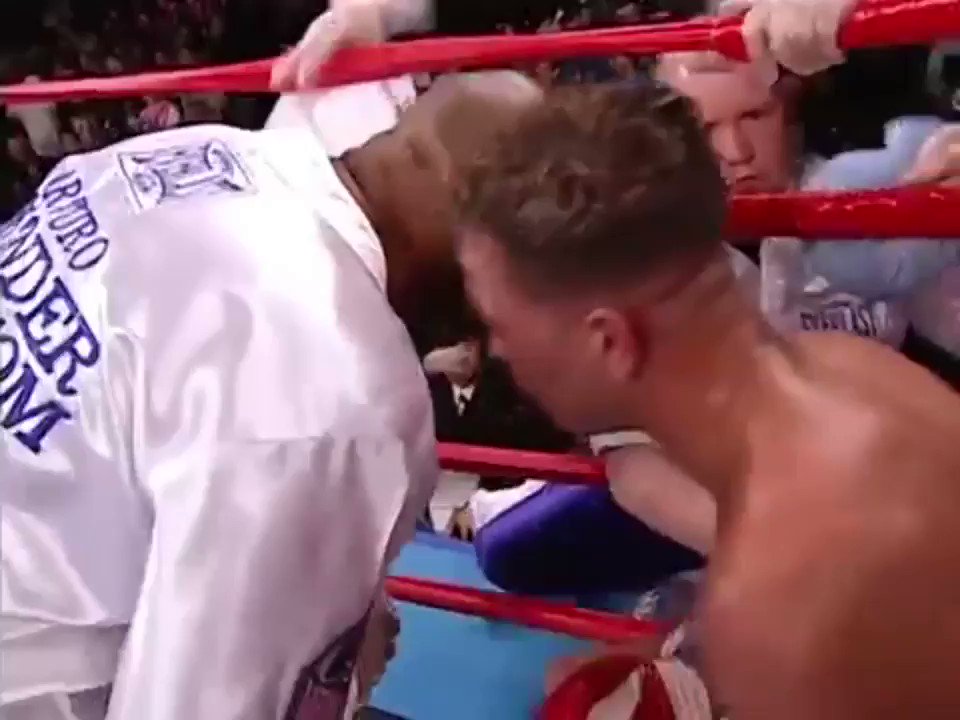
Now handicapped by his broken hand, Gatti was on the losing edge of the fight. Ward landed a hard right hand that sent Gatti sprawling on the canvas. Again, Arturo displayed amazing recuperative powers, and got back up, winning the next few rounds.
By round 10, both fighters were at their physical and emotional limits. The two simply stood toe to toe, slugging it out, splattering crimson gore across the ring, whilst one commentator repeatedly cried out “Oh my God!” But then the bell sounded and then the two warriors embraced. The scorecards were read, announcing another Gatti victory, but few cared. The heart shown by both men was all that anyone paid attention to.
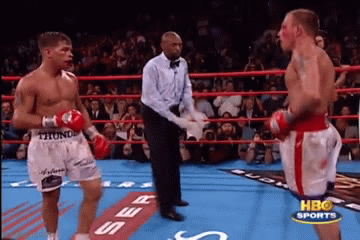
Neither man left the ring unscathed. Keeping up with the theme of either fighter being seriously injured post-fight, Gatti’s hand was confirmed to have been broken, and Micky suffered permanent vision damage in both eyes.
Despite the injuries, after their stellar trilogy, the two men quickly became friends. Gatti and Ward bonded not only over boxing but also basketball and golf. Ward might have retired, but he remained forever present in Gatti’s life as a friend and later, even as a trainer. The savage injuries inflicted on each man didn’t matter anymore – only their devotion to each other.
“See old friend, I got the last hit.”
Arturo Gatti, unfortunately, died under suspicious circumstances in 2009. When Micky Ward, who attended the funeral, passed by his coffin, he gave it one more tap. “See old friend, I got the last hit,” Micky tearfully said.
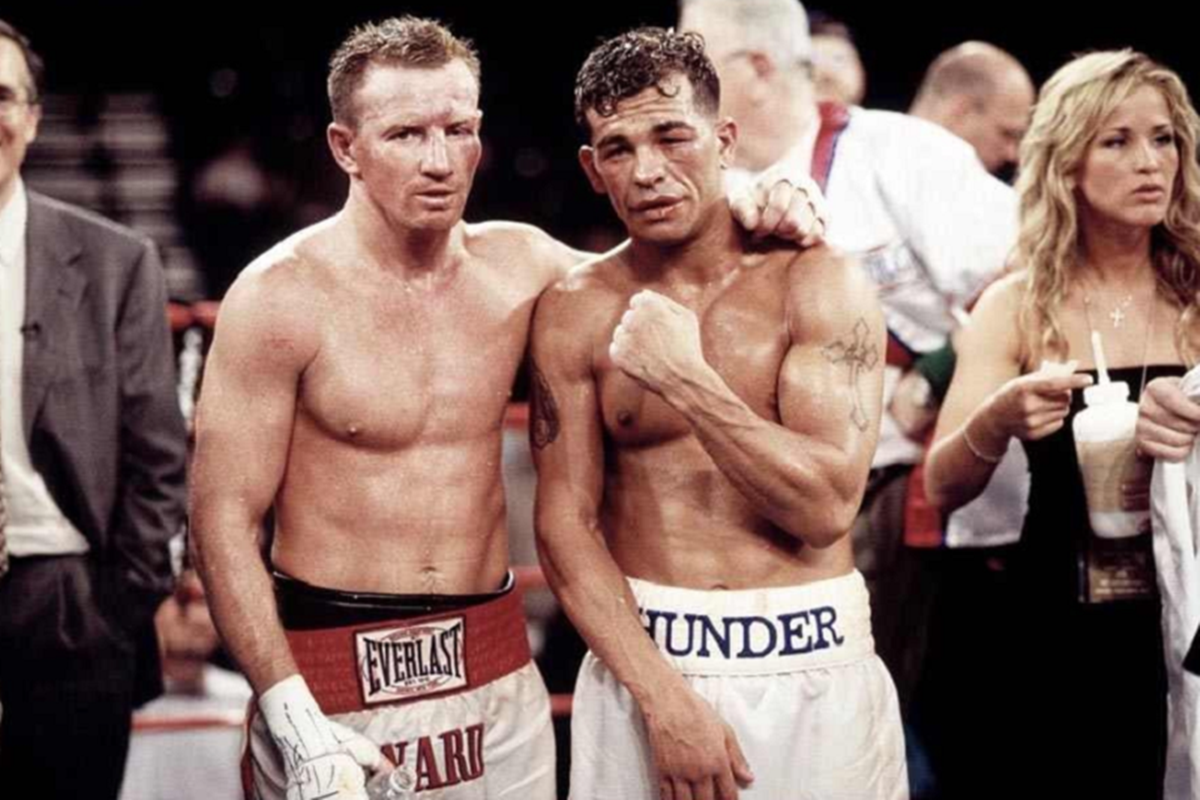
The two men’s relationship, soaring above the sport they loved so dear, remains a heartwarming tale of the spirit that comes out of former intense rivals. Our next story, in my third and final article, will not be as uplifting.
Stay tuned to the Jesuit Roundup for more boxing and sports coverage!

